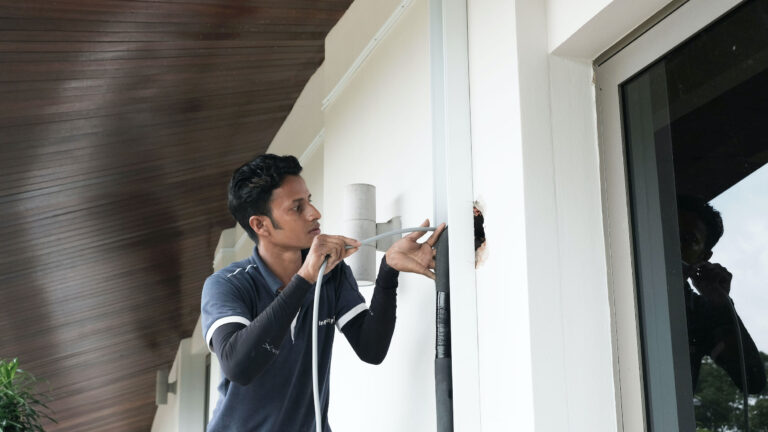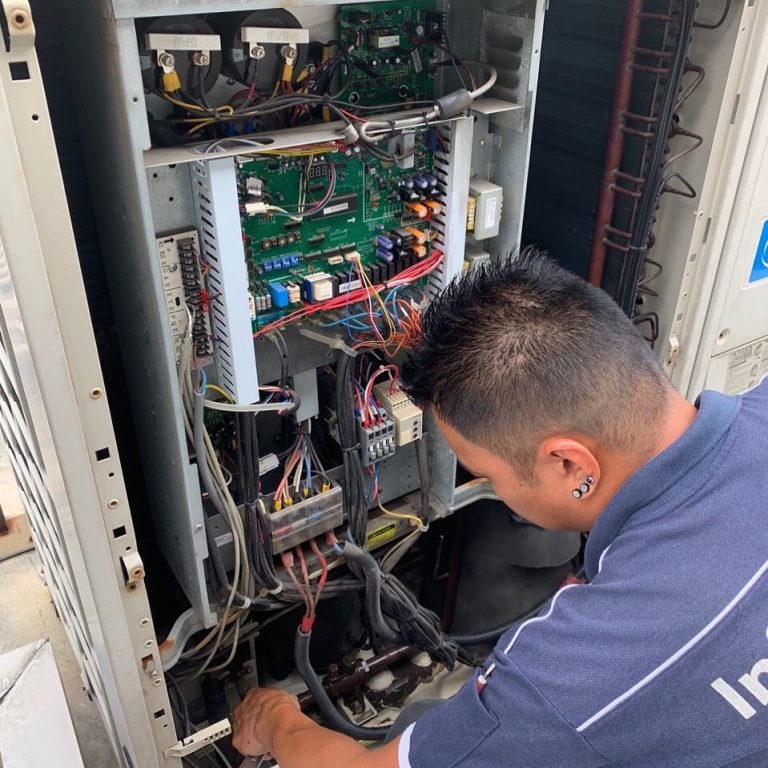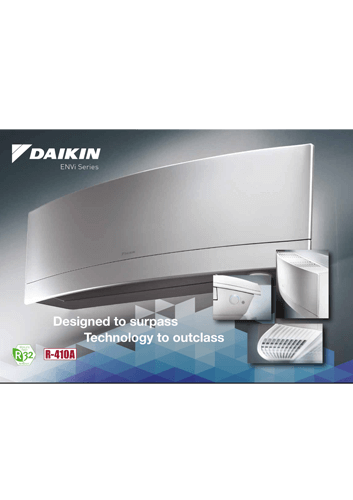In a tropical climate like Singapore’s, air conditioning is essential for both homes and businesses to maintain a comfortable environment. However, the air conditioning needs for residential and commercial spaces are quite different. Whether you’re outfitting an HDB flat, a condominium, an office, or a large industrial space, it’s crucial to understand the difference between commercial and residential air conditioning systems. In this article, we’ll break down the key differences between the two, and help you determine which type of air conditioner suits your space best.
Cooling Capacity and Size of the Space
One of the most significant differences between commercial and residential air conditioning systems is the cooling capacity, which is determined by the size of the space that needs cooling.
Residential Air Conditioners: These systems are designed to cool smaller spaces like HDB flats, condominiums, or landed homes. Residential aircon systems typically range between 9,000 to 24,000 BTUs (British Thermal Units) per unit, which is adequate for cooling one or two rooms at a time. Most residential units in Singapore opt for split-type air conditioning systems, where one outdoor condenser unit connects to one or more indoor units. This is ideal for a household setup with multiple rooms needing cooling at different times.
Commercial Air Conditioners: Commercial spaces, such as offices, retail stores, or large industrial buildings, require much more powerful cooling systems. These air conditioners range from 30,000 to 100,000 BTUs or more, depending on the size and layout of the space. Commercial buildings often use central air conditioning or multi-split systems to cool large areas, sometimes covering multiple floors. Because of the size and complexity of commercial spaces, these systems are designed for heavy-duty operation, catering to a much higher demand for cooling.
System Complexity and Customization
Commercial air conditioning systems are generally more complex than residential ones, both in terms of installation and operation.
Residential Air Conditioning: The systems used in homes are typically straightforward and require minimal customization. Most homes in Singapore use single or multi-split air conditioning systems, where one outdoor unit is connected to a few indoor units. These systems are relatively easy to install, and the main focus is usually on cooling comfort for bedrooms, living rooms, and dining areas. Homeowners can easily adjust temperature settings or switch units on and off as needed.
Commercial Air Conditioning: Commercial systems are highly customizable to meet the specific needs of the space they serve. These systems often feature central air conditioning, ducted units, or Variable Refrigerant Flow (VRF) systems, which can cool multiple zones or floors at once. Additionally, commercial buildings may require integration with other building management systems, such as ventilation and heating. As a result, commercial systems require more sophisticated installation, often tailored to the layout and usage patterns of the space.
Energy Efficiency and Operational Costs
Energy efficiency is a crucial factor when it comes to air conditioning, but the priorities differ between residential and commercial setups.
Residential Systems: Energy efficiency is a key concern for homeowners in Singapore due to rising electricity costs. Most residential air conditioning units today come with energy-saving features such as inverter technology, which adjusts the compressor’s speed to match the cooling demand, thus saving energy. Homeowners are often concerned about reducing their monthly electricity bills, and this is why many residential units opt for models that have higher energy efficiency ratings.
Commercial Systems: Commercial air conditioning systems operate on a much larger scale and need to run for extended hours, sometimes 24/7. As such, energy efficiency is just as important, if not more so. Commercial air conditioners typically have advanced energy management systems to optimize performance and minimize costs. VRF systems, for instance, offer precise temperature control for different zones, allowing businesses to reduce energy consumption in areas that don’t need cooling at certain times. However, the overall operational costs are still higher due to the size and cooling capacity required.
Installation and Maintenance
The installation and maintenance requirements for commercial and residential air conditioning systems differ significantly due to their size and complexity.
Residential Systems: Installing residential air conditioners is usually a straightforward process, often completed within a day or two, depending on the number of units. Maintenance, such as cleaning air filters and checking refrigerant levels, can often be performed by the homeowner or by scheduling routine servicing with a technician. Many residential users in Singapore engage in biannual or annual servicing to ensure their units are working efficiently.
Commercial Systems: The installation of commercial air conditioning systems is a much more involved process. It often requires a professional team to design, plan, and execute the installation, which can take several weeks depending on the building’s size and complexity. Maintenance for commercial units is also more demanding. These systems need frequent and more comprehensive checks to ensure optimal performance, particularly because any malfunction could disrupt business operations. Commercial systems often require professional servicing more regularly, sometimes monthly, due to their heavy-duty usage.
Usage Patterns
The way air conditioners are used in residential and commercial environments is also markedly different.
Residential Usage: Air conditioners in homes are typically used intermittently—turned on during the night in bedrooms or during the day in living areas, especially in Singapore’s warm climate. Residential units are designed for occasional use and cater to the comfort needs of families.
Commercial Usage: Commercial air conditioners, on the other hand, are designed for continuous use during business hours. In office buildings, shopping malls, or hotels, air conditioners often run throughout the day and may only shut off after closing hours. In some industries, such as data centers or manufacturing facilities, air conditioners run 24/7 to maintain critical temperature control, making durability and reliability more important for commercial systems.
Conclusion
Choosing the right air conditioning system depends heavily on whether you’re cooling a residential or commercial space. Residential air conditioners focus on comfort, energy efficiency, and ease of use for smaller areas like homes and apartments, while commercial systems prioritize powerful cooling, energy management, and tailored solutions for larger, more complex spaces. Whether you’re a homeowner looking to keep your family cool or a business owner needing a robust cooling solution, it’s essential to choose the right type of system that meets your specific needs.
For those in Singapore looking for expert advice on choosing the right air conditioning system, whether for residential or commercial use, Infinity Air is here to help. With over 20+ years of experience, Infinity Air specializes in providing customized aircon solutions for homes and businesses alike. Contact us via Whatsapp 9383 6574 today to learn more about how we can keep your space cool and comfortable all year round!


